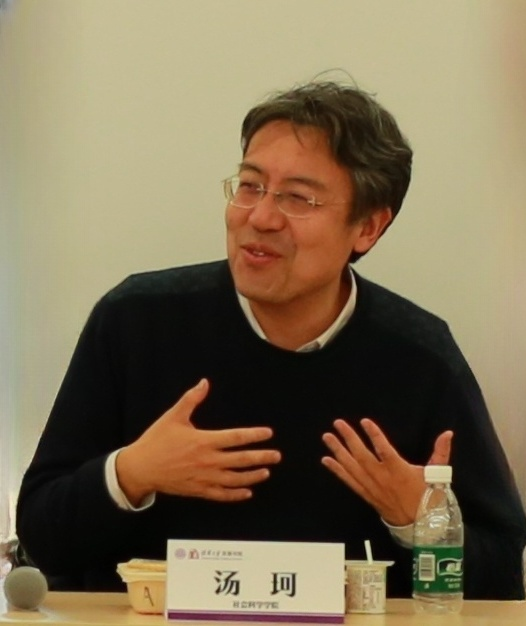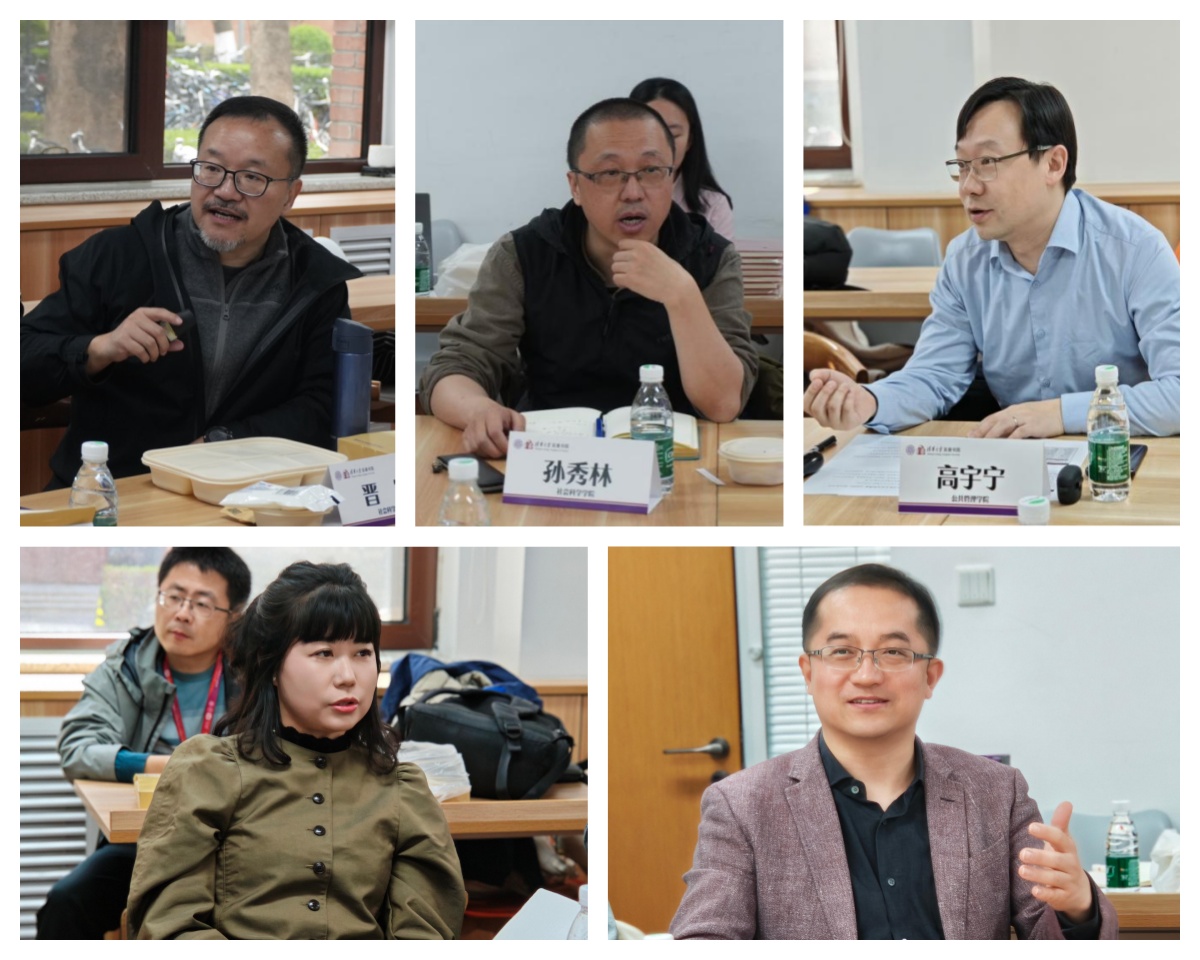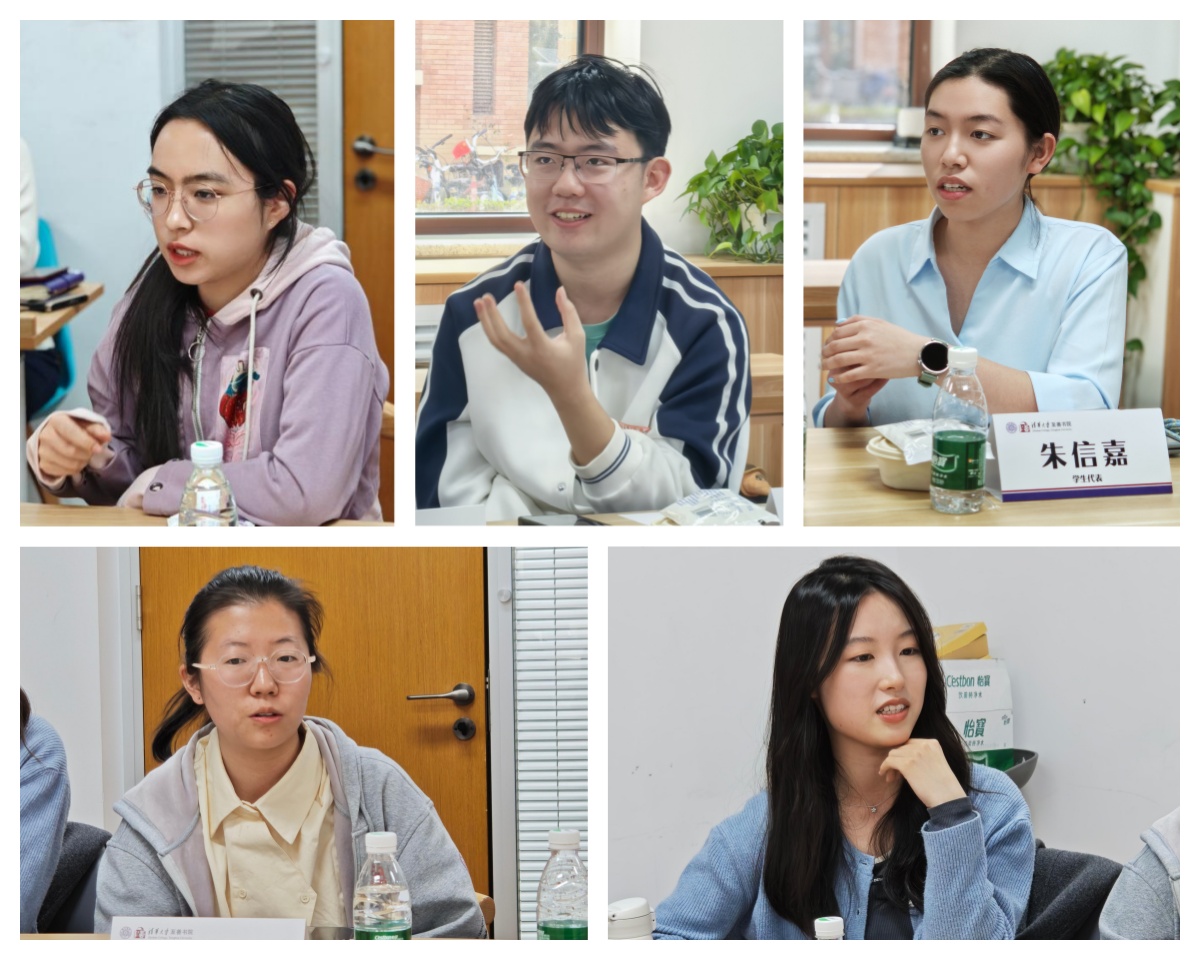On March 27, Zhishan College held a seminar on the Global Deep Dive (GDD) program, aiming to further develop and promote the curriculum framework of this required student initiative. The event was designed to enhance students’ practical and academic capabilities through immersive global field research.
Attendees included Professor Tang Ke, Dean of Zhishan College; Associate Dean Jin Jun; Head of Student Affairs Sun Zhen; Professor Sun Xiulin, Associate Dean of the School of Social Sciences; Professor Gao Yuning, Associate Dean of the School of Public Policy and Management; Professor Gao Hao, Director of the Global Family Business Research Center at PBC School of Finance; Li Yan, Senior Officer for International Affairs at the College Administration Center; Gao Lu, Program Officer for International Affairs; as well as several student representatives. The seminar was chaired by Professor Tang Ke.

Opening Remarks by Professor Tang Ke
Professor Tang opened the seminar by outlining its background and objectives, emphasizing the strategic importance of the Global Deep Dive (GDD) program. He noted that this seminar aimed to refine and implement the program framework to ensure the successful rollout of the 2024 summer session. The GDD course is intended to broaden students’ global perspectives and foster meaningful international experiences.
Drawing from his own field research visit to the United Arab Emirates during the winter break, Professor Tang also shared prospective locations for upcoming GDD projects, including the UAE, the United Kingdom, Japan, Kenya, and Hong Kong and Macau, China.

in order Jin Jun, Sun Xiulin, Gao Yuning, Gao Hao, and Li Yan
Associate Dean Jin Jun introduced the initial design and implementation plan for the GDD program. He explained that the course is tailored to nurture future leaders in the digital-intelligent era by integrating theoretical knowledge with hands-on exploration of real-world development challenges in China. The program will comprise two major components—domestic and international fieldwork—designed respectively for lower and upper-year students. The six-week curriculum will encompass pre-departure preparation, on-site investigation, data analysis, and academic writing. Zhishan College will provide comprehensive support for participants, including infrastructure, faculty supervision, academic mentoring, and financial assistance. Dean Jin also expressed the college's intention to strengthen collaboration with partner schools.
Professor Sun Xiulin shared the School of Social Sciences’ extensive experience in organizing professional internships, emphasizing the importance of research-driven practice. He highlighted the role of fieldwork in fostering students’ academic development and proposed innovations such as expanding the teaching assistant team, integrating college-level practice bases, and forming interdisciplinary teams.
Professor Gao Yuning detailed the School of Public Policy and Management’s approach to international fieldwork, particularly its collaborative program with the University of Cambridge. He covered aspects such as program workflow, course design, budgeting, and outcome transformation, while underscoring the need to establish a robust case database.
Professor Gao Hao reflected on the PBC School of Finance’s research and practice initiatives in the Middle East. He pointed out the program's employment-oriented focus, integration with academic coursework, and emphasis on case studies. The school also provides financial support to encourage participation. He recommended that Zhishan College consider developing a flagship international program and promote interdisciplinary student teams for greater intellectual synergy.
Li Yan presented on the development and operation of the College’s overseas practice bases, highlighting 13 newly established sites in countries such as France, Japan, Malaysia, and Türkiye. She explained the procedures for engaging these sites and encouraged the College to actively leverage these resources for future GDD activities.

In order Ma Zhongqi, Zhao Haiyang, Zhu Xinjia, Du Xing, and Li Xiaozhou
Student representatives from winter fieldwork teams shared their research experiences conducted in the UAE, Kashgar (Xinjiang), Taizhou and Sanmen (Zhejiang Province), among other locations. They offered valuable suggestions for improvement and reflected on the gains made despite various challenges—citing enhanced academic capabilities and broader worldviews as key takeaways.
In the final discussion session, participants explored key issues such as the development of overseas practice bases, funding mechanisms, the structure of the teaching support team, current challenges and opportunities, and strategies for integrating academic resources. The dialogue generated numerous constructive proposals for the future advancement of the GDD program.
In his concluding remarks, Professor Tang Ke expressed sincere gratitude to all attendees and outlined next steps for the program, including the expansion of domestic practice bases, integration of ideological and political education components, and the establishment of a comprehensive case database. He encouraged students to continuously offer feedback and suggestions, reaffirming the College's commitment to shaping the Global Deep Dive into a signature course that reflects Tsinghua’s academic excellence and Zhishan College’s educational philosophy.
This seminar laid a solid foundation for the continued development of the Global Deep Dive (GDD) program and is expected to drive new breakthroughs in experiential learning and global engagement.

